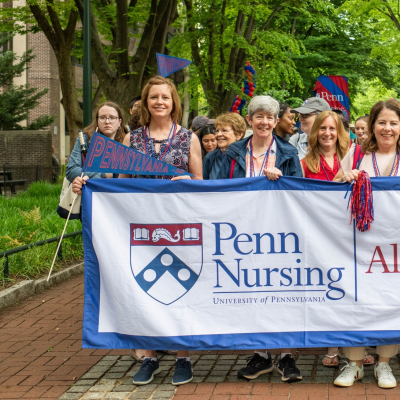NIH Grant for Innovative Study Using Patient Verbal Communication to Detect Deterioration in Heart Failure Patients in Managed Long-Term Care
To improve the quality of care and reduce healthcare expenditures, heart failure patients in the U.S. are increasingly being treated in community-based programs such as managed long-term care. Although early identification of patients’ risks of negative outcomes, including hospitalizations or emergency department visits, has been shown to prevent these adverse outcomes in settings including hospitals and nursing homes, it has not been studied in managed long-term care.
October 09, 2023

The University of Pennsylvania School of Nursing (Penn Nursing) has been granted a five-year, $1 million, K99/R00 Pathway to Independence Award from the National Heart, Lung, and Blood Institute of the National Institutes of Health to support a groundbreaking study. This study aims to develop and test risk prediction models using audio processing and speech recognition technology to detect early signs of deterioration in heart failure patients in long-term care, ultimately improving their outcomes.
The “HEAR-HEARTFELT (Identifying the risk of Hospitalizations or Emergency depARtment visits for patients with HEART Failure in managed long-term care through vErbaL communicaTion)” study, led by Jiyoun Song, PhD, AGACNP-BC, APRN, a lecturer in the Department of Biobehavioral Health Sciences, who previously held an NRSA Postdoctoral Research Fellow at the NewCourtland Center for Transitions and Health at Penn Nursing, aims to incorporate patient verbal communication and resulting data into clinical decision support systems. By leveraging the potential of data science, the study will explore the untapped resource of verbal communication between care coordinators such as nurses or social workers and heart failure patients, which contains valuable information.
“From the linguistic perspective, verbal communication between patients and healthcare providers is a form of information-seeking and sharing,” explains Song. “From an acoustic perspective, the characteristics of vocal waves are affected by symptoms of heart failure, including fluid retention or laryngeal nerve compression due to cardiac enlargement.”
To collect the data, investigators will first analyze approximately 30,000 phone call recordings from more than 3,600 racial/ethnically diverse patients with heart failure. This data will then be used to develop machine-learning risk-prediction models. This research is supported by the National Heart, Lung, And Blood Institute of the National Institutes of Health under Award Number K99HL169940.








